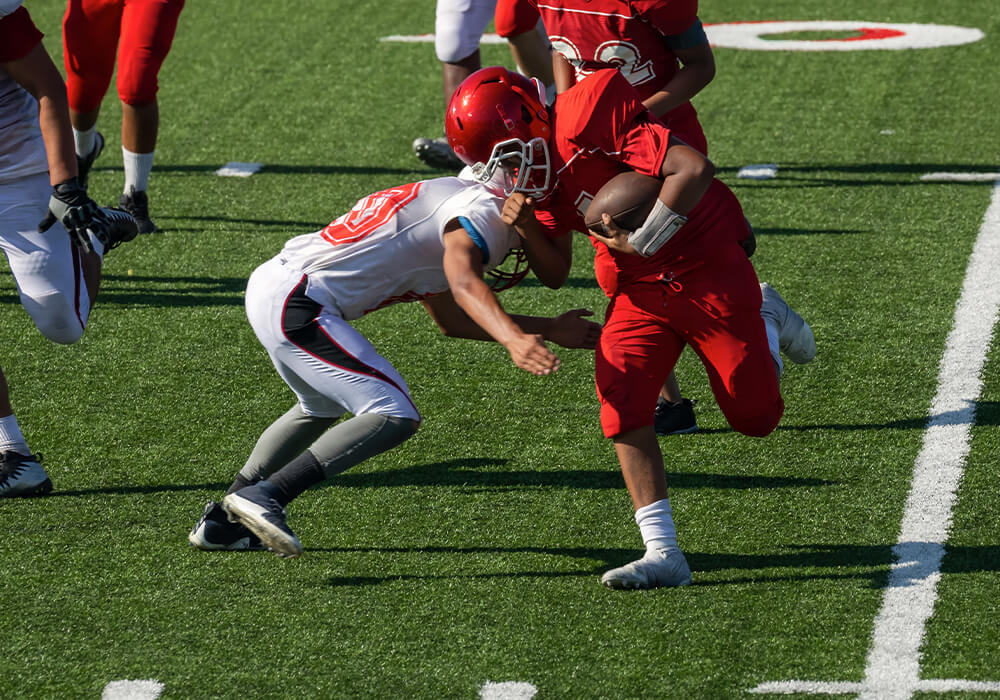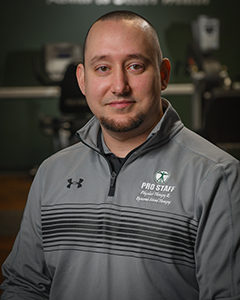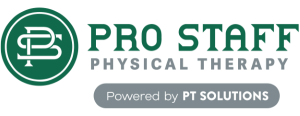Concussion Rehabilitation: Returning Safely to Activity
Concussions, a type of traumatic brain injury (TBI), occur when a blow or jolt to the head causes the brain to move rapidly back and forth within the skull. This sudden movement can lead to a temporary disruption of normal brain function, affecting cognitive processes, physical coordination, and emotional well-being. While concussions are common in contact sports, they can also result from falls, motor vehicle accidents, and other everyday incidents.
Returning to play, recreational activities, or work after a concussion requires a carefully structured approach to ensure that individuals do not rush the process and risk further injury. Physical therapists play a pivotal role in this transition, offering expert guidance and support. The role of physical therapy in concussion care is multifaceted, extending from initial assessment and symptom management to prevention of future injuries. This comprehensive approach underscores the importance of physical therapy in both the acute and recovery phases of a concussion.

Signs and Symptoms of Concussion
Understanding the signs and symptoms of a concussion is crucial for timely intervention. Symptoms can vary widely among individuals and may present immediately after the injury or develop over several hours or days. Common signs and symptoms include:
- Cognitive Symptoms: Confusion, disorientation, difficulty concentrating, memory loss.
- Physical Symptoms: Headache, dizziness, nausea, balance problems, sensitivity to light or noise, blurred vision, fatigue.
- Emotional Symptoms: Irritability, sadness, emotional lability, anxiety.
- Sleep Disturbances: Difficulty falling asleep, sleeping more or less than usual.
It’s important to note that not all concussions result in loss of consciousness, and the severity of symptoms does not always reflect the severity of the injury.
Initial Management and Assessment
The initial management of a concussion involves the critical RICE protocol (Rest, Ice, Compression, Elevation) to mitigate swelling and pain, alongside cognitive rest to allow the brain to heal. Pro Staff physical therapists play a key role in the early assessment of a concussion, evaluating symptoms and performing baseline tests to understand the injury’s impact on functions such as balance, coordination, and neck stability.
Physical Therapy Interventions in Concussion Care
There are multiple components of physical therapy for concussions, with each playing a crucial role in mitigating the immediate effects of a concussion and in laying the groundwork for a comprehensive and lasting recovery. Here is a closer look at the various aspects of concussion care physical therapy:
Vestibular Rehabilitation
Specialized therapy for balance and dizziness issues post-concussion.
Utilizes tailored exercises to enhance vestibular system function.
Aims to improve stability and reduce vertigo symptoms.
Vision Therapy
Addresses concussion-induced visual processing problems.
Focuses on exercises to improve eye movement, focus, and coordination.
Targets eye tracking, convergence, and shifting focus between objects.
Cervicogenic Interventions
Treats neck strain associated with concussions, leading to cervicogenic headaches.
Employs manual therapy, strengthening exercises, and posture correction.
Alleviates pain and enhances neck function.
Aerobic Conditioning
Essential for concussion recovery to boost brain blood flow and cardiovascular health.
Involves controlled, low-impact aerobic exercises.
Carefully monitored to prevent symptom exacerbation.
Education and Cognitive Rest
Emphasizes the need for cognitive rest post-concussion.
Advises limiting mentally straining activities (e.g., screen time, reading).
Essential during the early recovery phase to facilitate healing.
Return-to-Activity Protocols
At Pro Staff, our physical therapists collaborate with patients to develop individualized return-to-play or return-to-work protocols. Due to the brain’s vulnerability after a concussion, it’s crucial to avoid any activity that could exacerbate symptoms or lead to another concussion. Prematurely returning to normal activities, especially those with a risk of impact or requiring intense concentration, can significantly prolong recovery and increase the risk of complications. These guidelines ensure a safe and gradual resumption of sports, recreational activities, or occupational tasks, minimizing the risk of reinjury or prolonged recovery.
Initial Assessment:
The first step involves a comprehensive evaluation of the patient’s current condition. Physical therapists assess symptoms, balance, coordination, strength, and cognitive function. This assessment provides a baseline to guide the progression of the return-to-play/work protocol.
Graduated Return-to-Play (RTP) or Return-to-Work (RTW) Strategy:
Based on the initial assessment, physical therapists design a graduated return-to-play or return-to-work strategy. This strategy typically includes several progressive stages, starting from light activity and gradually increasing to full participation in sports or work tasks. Each stage is designed to introduce a slightly higher level of cognitive and physical demand, closely monitoring for any recurrence of symptoms. The stages might look something like this:
- Light Aerobic Exercise: Activities that increase the heart rate without risking head impact, such as walking or stationary cycling.
- Moderate Exercise: Introducing more substantial physical activity but still without risk of head impact. This might include running or more intense cycling.
- Non-contact Training Drills: Depending on the sport or activity, this stage allows for more complex training drills that mimic game situations but without any risk of contact or collision.
- Full Contact Practice: After medical clearance, individuals can participate in normal training activities, allowing for the assessment of functional skills and response to contact.
- Return to Play/Work: Full return to sport or occupational duties.
Monitoring and Adjustment:
Throughout the return-to-activity process, Pro Staff physical therapists monitor the patient for any signs of symptom recurrence or difficulty with the activities. If symptoms reappear or if the patient struggles with the increased demands, the protocol may be adjusted, potentially requiring a return to a previous stage until stability is regained.
Communication and Collaboration
Physical therapists maintain open lines of communication with patients, families, coaches, and employers throughout the process. This collaboration ensures that all parties are informed about the patient’s progress and any necessary accommodations or modifications to activities.
The return-to-play/work protocols developed and implemented by Pro Staff physical therapists are critical for safely resuming sports, recreational activities, or occupational tasks after a concussion. By taking a gradual, staged approach and closely monitoring for symptoms, physical therapists help minimize the risk of reinjury and ensure that individuals return to their activities with confidence and safety.
Start Recovering with Pro Staff
The role of physical therapy in concussion care is indispensable, offering a pathway to recovery that addresses the broad spectrum of concussion symptoms. From initial assessment and symptom management to rehabilitation and prevention, physical therapists provide essential support to individuals recovering from this complex injury. By fostering a deeper understanding of concussion symptoms and advocating for a proactive, multidisciplinary approach to care, Pro Staff Physical Therapy ensures that patients can return to their daily lives with confidence and reduced risk of future concussions. If you or a loved one have suffered a concussion, please do not hesitate to contact us at 1.844.REHABPT (734-2278) or request an appointment online.
Pro Staff Institute, LLC, has a network of outpatient physical rehabilitation centers in New Jersey. Pro Staff was founded in 2010 by Frank Pavlisko and Michael Maffucci. Through Frank’s 25 plus years experience in Physical Therapy and Michael’s experience in Management Services, our goal is to exceed customer expectations by providing the highest quality of service in a fun, family, friendly, and encouraging environment.
PRO STAFF LOCATIONS
OFFERING CERTIFIED
HAND THERAPY
Managing Diabetes: The Role of Physical Therapy
Managing Diabetes: The Role of Physical Therapy As of 2024, approximately 38.4 million Americans, or 11.6% of the U.S. population, have diabetes. Of these, 29.7 million cases are diagnosed, while an estimated 8.7 [...]
Staying Active and Injury-Free During Summer Activities
Staying Active and Injury-Free During Summer Activities Summer is a fantastic time to engage in outdoor sports and physical activities. Whether playing soccer, tennis, cycling, or jogging in the park, staying active is [...]
The Importance of Posture: How Proper Alignment Can Prevent Pain and Injury
The Importance of Posture: How Proper Alignment Can Prevent Pain and Injury In today's fast-paced world, where many hours are spent over desks, smartphones, and computers, posture is often neglected. Poor posture can [...]




